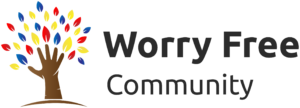Equipping Muslims with PCOR-Based, Action-Oriented Research Tools
Fighting COVID-19 Together
Honesty & Trust
Monthly meeting was held virtually on March 21st, 2021
The objective of these monthly meetings is to cultivate relationships among the diverse stakeholders from the mosque communities by exploring the patient-centered outcomes research (PCOR) engagement principles while highlighting the work of specific community-based organizations that demonstrate these principles in their everyday work. Click here for a complete meeting recording…
Nasser Aziz, discussed “Trust Building through Honesty”. He views honesty and trust as integral parts of that same platform where honesty cannot exist on its own and Trust can not be developed if honesty is missing. He explores a seven-step process during his hour-long presentation and leaves us with a mathematical equation that can help anyone trigger the response cycle of honesty and trust and empowers people to become the “agents of change.” Trust and Excellence go hand in hand. High level of trust and a high level of excellence leads to effective teams and project implementation while a low level of trust and a low level of excellence ends in disaster. The sphere of influence (I) in addition to factors that are uncontrollable (U) leads to the sphere of concern. There are seven key factors that develop the power of trust around the spere of influence. These are intention & attention, honesty & integrity, empowerment, looking for the good in others, Power of developing people, gracious manners, and Power of Dua (prayer). The training provided an example of how to implement these values such as in helping victims shift their grips to goals through a four-step master process. This includes listening to seek to understand, defining the goal, brainstorming an action plan to achieve the goals, and establish commitment. These best practices of developing honesty and trust will penetrate the entire sphere of influence of the individual and serves as the foundations of developing relationships for any kind of collaboration for community health research projects. For the full mathematical equation and the action plan to implement in your lives, download the entire presentation here.
Dr. Mushira khan discussed the importance of honesty in research projects. As a researcher who prefers qualitative inquiry and social narratives by patients, she highlighted specific studies that shook the trust in research but also presented examples as to how the scientific community took steps to rectify the situation. Nonetheless, it is important for the researchers to be very honest and it’s the job of nonprofits to be vigilant as they facilitate community access to research projects. The Study “A Qualitative Inquiry into Diverse Stakeholder Perspectives on Healthy Aging across Chicagoland”, was completed on the barriers to access and the underlying feeling of distrust among three major ethnic groups. All three groups had various barriers. In the African American community, neighborhood factors, exposure to violence, and historical factors impact their perspectives. South Asians experience acculturative stress to conform after immigration and other visible stigmas impact their community engagement. The Latino community tends to experience fragmented life situations due to their immigration status. However, MISTRUST was a common barrier to all three groups.In summary, fundamental societal elements such as systemic racism, stigmatization, limited health literacy, and certain cultural beliefs all play a role in increasing the sense of mistrust amongst community members. To rebuild trust certain elements are needed including thinking critically of the different challenges community members face, developing tailored and targeted messages, and providing the proper education. Download the presentation here.
The project’s purpose is to build Patient-Centered Research Capacity in mosque communities by introducing the community to PCOR methods and tools. The aim is to build the culture and framework to implement patient-centered outcomes research to help patients and their caregivers make informed decisions. This will include the basic steps of planning, conducting, disseminating findings, and proper implementation of best practices through engagement principles. The EMPART project has introduced the mosque-PCOR toolkit to the mosque community at large will be looking to disseminate the toolkit to the mosque leaders in the region. This will include the involvement of community health workers, providing research materials to mosque board members, subject matter experts, public officials, and the project team that will bring in the money for the community’s health needs. Key subject matter experts on the advisory board include Dr. Kamal Edleirawi, a community health researcher, Hira Mirza, Imran Khan an Information technology specialist, and Dr. Mushira Khan, a research methodologist.
Nasser Aziz: Honesty & Trust; Workshop by Building Beautiful minds Presentation
Dr. Mushira: Building Trust in Healthcare and Research Presentation
Monthly Stakeholder Meeting Presentation





